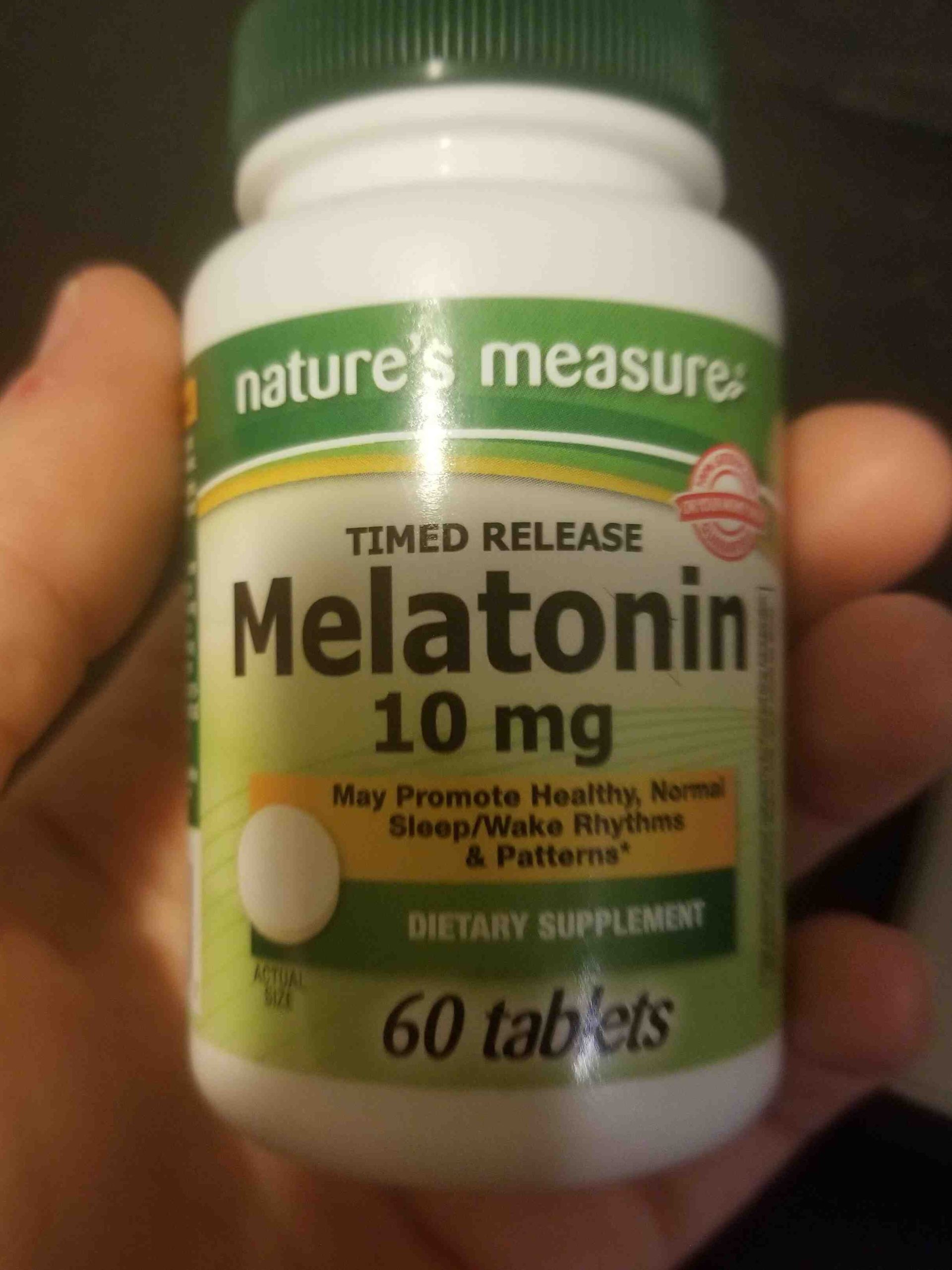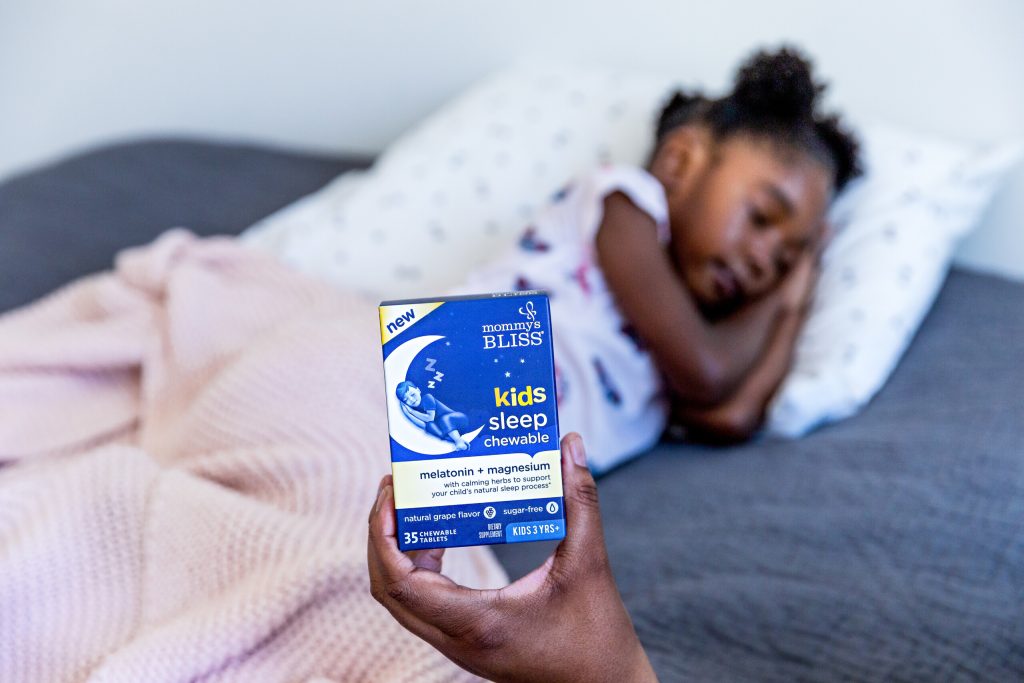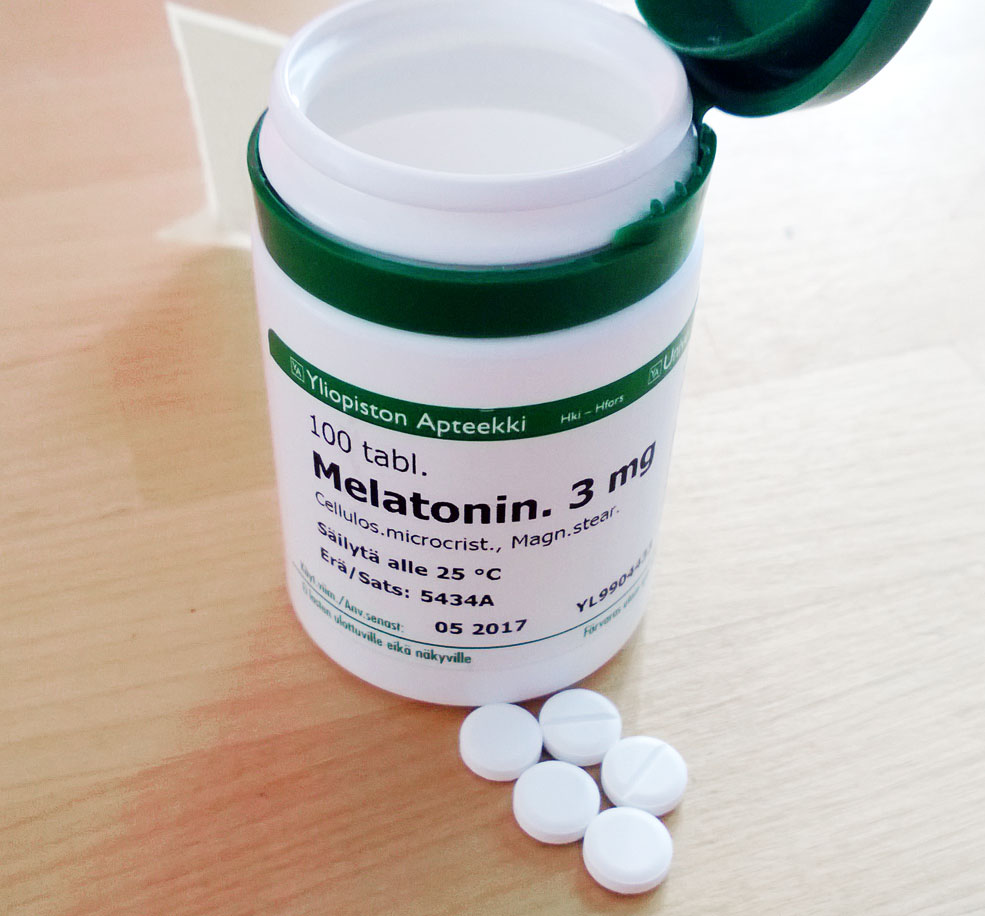
People who have become parents for the first time come across a lot of challenges in the journey of raising their children well. They face several questions related to different aspects of their child’s upbringing and well-being. One of these questions is regarding melatonin for kids. Parents wonder whether they should give melatonin to their kids or not. If you, too, want to know whether melatonin is safe for your child or not, let us give you a satisfactory answer.
Table of Contents
What Exactly is Melatonin? Why Is It Used?
Let us start by understanding what melatonin is. The melatonin discussed in this blog post is a sleep aid available in the market. But the word ‘melatonin’ is also used to refer to a hormone naturally produced in the body. The pineal gland, which is a small endocrine gland in the middle of the brain, produces melatonin. This hormone is released at night, so its level in the body is highest at night. This hormone plays a key role in the sleep-wake cycle. It suggests to the body that it’s time to sleep.
Melatonin is available as a dietary supplement without a prescription at pharmacies. People consume this supplement to sleep well. It helps in treating conditions like jet lag, insomnia, and delayed sleep-wake phase disorder. Some people give melatonin supplements to their children. Therefore, the question regarding the safety and effectiveness of melatonin for kids comes into the picture.
You must be aware of the fact that children don’t fall asleep easily. They can create problems when it comes to sleeping. While some children become more energetic at night, others might stay awake intentionally to trouble their parents. In such a scenario, parents resort to melatonin. They buy a melatonin supplement and make their children consume it.
Now, it’s quite understandable that life becomes tough after having a child. The responsibilities of parents increase a lot. They become more tired than before. Getting a good night’s sleep is important for them so that they can function well the next day.
But you must learn everything about melatonin supplements before giving one to your child. An increasing number of parents are turning to melatonin. Therefore, the demand for melatonin supplements has increased in recent years. It’s worth mentioning here that melatonin is not a sleeping pill. It is available in different forms, such as tablets, capsules, liquids, chewable, and gummies.
Melatonin for Kids: What All You Need to Know
While more and more parents are using melatonin to make their kids fall asleep, it cannot be ignored that melatonin has been criticized by medical experts several times. Many studies have been undertaken to find out the short-term and long-term effects of melatonin. Studies have proven that melatonin is a safe option in the short term for kids who have trouble sleeping.
But in the long term, melatonin can cause various harmful effects on a child’s body and mind. Some of the most common side effects observed in children who take melatonin are increased urination at night, drowsiness, and morning sleepiness. An excessive amount of melatonin can disrupt the circadian rhythm of children. A circadian rhythm is a process that can be best described as the 24-hour internal clock. It regulates the sleep-wake cycle by responding to the changes in the light around you.
Melatonin supplements might also interfere with the growth and development of your child. You must be aware of the FDA, i.e., the Food and Drug Administration. Learning about the safety and effectiveness regarding melatonin for kids is incomplete without learning about the stance of the FDA pertaining to melatonin supplements. Now, we must specify here that the FDA does not regulate the use of melatonin supplements.

Therefore, you should rely on the advice given by your pediatrician in order to decide whether you should give melatonin to your kids or not. They might recommend alternative methods to help your child sleep. If melatonin is the only suitable option in the case of your child, a pediatrician would suggest the right product and dosage.
What are the Alternative Solutions to Melatonin for Kids?
If you want to avoid giving melatonin to your kids, you can implement other solutions to make them fall asleep easily. For example, you can create a proper sleep schedule and bedtime routine for your children. Set a fixed time for sleeping and waking up. Make your child follow the sleep schedule. In the beginning, your kid might not be able to sleep at a predetermined time.
But after a few days, they will get used to it. Their circadian rhythm will adjust to their daily sleeping time. Eventually, your child will start feeling sleepy around bedtime. You need to make your child practice some habits before sleeping so that their mind can become calm. These habits include but are not limited to brushing the teeth, bathing, reading a book, and praying. It’s common for parents these days to allow kids to use smartphones and other devices for browsing social media and carrying out other activities.

It has been proven by several studies that the blue light emitted from the screen of devices, such as smartphones, tablets, laptops, and e-book readers affect levels of melatonin. It can make your child feel more alert by tricking their brain into thinking that it’s daytime. You should make sure that your child does not get exposed to tech devices for two hours before bedtime.
You should also create an environment conducive to sleep. The bed in your kid’s time should have a bedsheet with a light color. The walls of their room should also not have dark or bold colors. Install curtains in their room and draw the curtains at night. It will give a signal to the brain of your child that it’s time to sleep. If your child faces difficulty in sleeping due to being overly energetic, you can make them exercise or play a sport so that they can feel tired at bedtime.
Final Thoughts
Various studies are undertaken from time to time to understand melatonin for kids properly. You should stay extra cautious when it comes to making your child consume anything, whether it’s a food item, prescription medicine, over-the-counter medicine, or supplement.
RELATED ARTICLES
Latest Articles
 The Summer Learning Loss – 7 Key Aspects You Must Understand in 2025In TipsNovember 29, 2024Every year, students face summer learning loss during […]
The Summer Learning Loss – 7 Key Aspects You Must Understand in 2025In TipsNovember 29, 2024Every year, students face summer learning loss during […] Equity Trading in Global Markets: Key ConsiderationsIn TipsNovember 4, 2024How prepared are you to explore the possibilities that […]
Equity Trading in Global Markets: Key ConsiderationsIn TipsNovember 4, 2024How prepared are you to explore the possibilities that […] Crafting a Standout Resume and Networking Your Way to Jobs in CanadaIn TipsOctober 23, 2024When applying for jobs in Canada, the format of your […]
Crafting a Standout Resume and Networking Your Way to Jobs in CanadaIn TipsOctober 23, 2024When applying for jobs in Canada, the format of your […] How to invest in the future?In TechnologySeptember 27, 2024Who doesn’t want to build up some extra pension […]
How to invest in the future?In TechnologySeptember 27, 2024Who doesn’t want to build up some extra pension […] How to De-Stress While TravelingIn TravelAugust 7, 2024Traveling can be an exciting adventure, offering […]
How to De-Stress While TravelingIn TravelAugust 7, 2024Traveling can be an exciting adventure, offering […] Online Gaming: A Revolution in Entertainment and Social InteractionIn EntertainmentJuly 16, 2024The world of online gaming has seen remarkable growth […]
Online Gaming: A Revolution in Entertainment and Social InteractionIn EntertainmentJuly 16, 2024The world of online gaming has seen remarkable growth […] Dark Past Vehicle History Report Can RevealIn AutomotiveJuly 9, 2024The more well-maintained a used car, the harder it is […]
Dark Past Vehicle History Report Can RevealIn AutomotiveJuly 9, 2024The more well-maintained a used car, the harder it is […] Enhancing Your Craft: Advanced Techniques in Woodworking SpindlesIn TipsJune 27, 2024If you’ve been performing basic techniques on […]
Enhancing Your Craft: Advanced Techniques in Woodworking SpindlesIn TipsJune 27, 2024If you’ve been performing basic techniques on […] Ways To Create Unique Cosplay OutfitsIn FashionMay 7, 2024Cosplay is popular among fans of certain movies, TV […]
Ways To Create Unique Cosplay OutfitsIn FashionMay 7, 2024Cosplay is popular among fans of certain movies, TV […] Mastering the Art of Machine Vision: Choosing the Perfect Lens for Optimum PerformanceIn TechnologyMay 2, 2024Key Takeaways: Machine vision is a technology that […]
Mastering the Art of Machine Vision: Choosing the Perfect Lens for Optimum PerformanceIn TechnologyMay 2, 2024Key Takeaways: Machine vision is a technology that […] Unlocking Success: Mastering Bank PO Interview PreparationIn EducationApril 24, 2024For banking careers, PO interviews stand as formidable […]
Unlocking Success: Mastering Bank PO Interview PreparationIn EducationApril 24, 2024For banking careers, PO interviews stand as formidable […] The Strategic Value of Purchasing FontsIn TipsApril 18, 2024In today’s visually driven world, fonts are more […]
The Strategic Value of Purchasing FontsIn TipsApril 18, 2024In today’s visually driven world, fonts are more […]
stopie.com is a participant in the Amazon Services LLC Associates Program, an affiliate advertising program designed to provide a means for sites to earn advertising fees by advertising and linking to Amazon.com.
Clicking on an Amazon link from stopie.com does not increase the cost of any item you purchase.
We will only ever link to Amazon products that we think our visitors may be interested in and appreciate learning more about.





